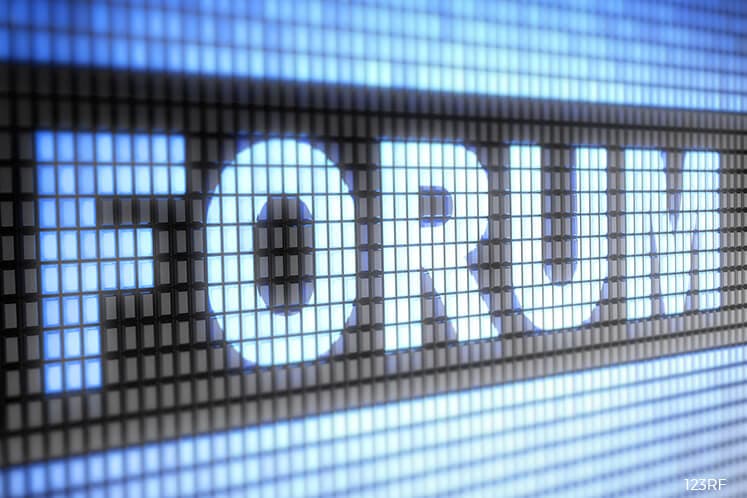
This article first appeared in Forum, The Edge Malaysia Weekly on November 13, 2017 - November 19, 2017
Work smarter, not harder” is a common exhortation of CEOs. Another common directive is “do more with less”. But how? Simplistic slogans masquerade as management insights with worrying frequency. In business, it is not the “what” but the “how” that matters more.
Just take a look at your calendar. Is your day programmed with meetings and events, without a moment to spare? Are you consistently grabbing lunch and eating on the run? Is it challenging to fit everything you need to do into that available time?
Or are you using the limited time to do what matters and to do it well? It is not about squeezing in more and more activities during the day but what you put into your day that is more important.
Mental exhaustion is not conducive to coming up with breakthrough ideas or insights. A state of constant busyness is like accelerating without having a direction. As a well-known neuroscientist said, “You waste years by not being able to waste hours”. Creativity and innovation need to be nourished by thinking time. They cannot be measured directly but can have an immeasurable impact on your organisation.
Top management needs to reflect whether creating mental traffic jams for employees by squeezing even more tasks into a limited time period creates the conditions for breakthrough ideas, customer-centricity and all the important things that are expected from employees. Bumper-to-bumper traffic is hardly the condition to experience the exhilaration of driving a Ferrari.
Embedded in the “doing more with less” and “working smarter, not harder” mantras is the holy grail of multitasking. Multitasking is a myth. Research has shown that multitasking actually makes us more inefficient. The brain does not do things simultaneously. What actually happens is that activities are conducted sequentially for very brief periods of time, which makes it appear that they are being done simultaneously. Instead of saving time, you end up wasting time. The limited attention span of many CEOs should be a source of grave concern, just as a misdiagnosis of cancer can have fatal consequences.
Productivity is not linear. When one works longer hours, fatigue sets in. Mistakes are more likely to occur and the quality of decision-making declines. It is fine once in a while but creativity and mastery of complex problems come from a rested — not an exhausted — mind. Being busy and sleep-deprived often make a lot of people feel important but the quality of their work suffers. The irony is that you sometimes work best when you are not working.
Instead of lamenting about poor employee engagement and exhorting employees to work smarter, companies can take concrete action to create an environment that enables greater focus, leading to sustained improvements in productivity. A McKinsey Global Institute study found that employees spend 28% of their work week checking emails. Bain & Co, another consulting firm, found that in a sample of large firms, managers spent about 15% of their time in meetings with senior managers and about two days a week in meetings. Senior management is guilty of imposing a time tax on employees.
Here are a few simple actions regarding emails and meetings that speak louder than words:
- Ban internal emails between 10pm and 7am. This is already being done by some companies so that both managers and staff can disconnect without feeling guilty.
- Auto delete all incoming internal emails while on vacation. A few companies have started this practice. Imagine coming back from holiday to a relatively clean inbox, except for emails from clients. Your colleagues have to either sort out the problem while you are away or wait until you come back. You are totally free to disconnect and recharge.
- Disable “reply all” or disable it one or two days a week. Just cutting down the volume of email traffic will make a huge difference. The indiscriminate copying of everyone, often to protect oneself, is hugely distracting and unproductive.
- Ban all internal meetings on a particular day of the week.
- Institute a rule that meetings cannot last for more than one hour. Frankly, most meetings are unproductive. Brevity forces focus.
Many employees are helpless against the onslaught of distractions in the workplace. Reducing these interruptions, creating space for focusing and improving the ability to recharge through sensible institutional policies will do more to improve productivity and engagement than pithy slogans.
Various wellness programmes and other actions have limited value when energy-depleting activities are allowed to continue. It is hard to fill a glass with water when it has a leak at the bottom. CEOs need to lead with concrete actions to reduce time leakages and help employees work smarter. Will they have the courage to do so?
Sanjeev Nanavati is a senior adviser to multiple firms. He is the managing principal of Falcon Associates, which helps companies and leaders deliver visible impact. He was the longest-serving CEO of Citibank in Malaysia.
Save by subscribing to us for your print and/or digital copy.
P/S: The Edge is also available on Apple's AppStore and Androids' Google Play.